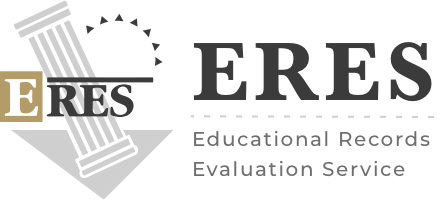The United States recognizes Certified Public Accountants (CPA) as the established mark for exceptional accounting expertise.
New licensing standards have been implemented to accommodate changes in the accounting industry and worldwide requirements for qualified accounting practitioners.
These changes have substantial effects, mainly affecting global students who want to become certified U.S. CPAs.
Introduction of the CPA Evolution Initiative
CPA Evolution Initiative
The CPA Evolution initiative started its operations in January 2024 when the American Institute of CPAs (AICPA) and the National Association of State Boards of Accountancy (NASBA) established this program.
The new transformation of CPA licensing aims to match emerging expertise needs of contemporary accounting practice. Under the new licensure model, two elements make up the system: Core and Discipline.
Core Sections
All candidates must demonstrate proficiency in three fundamental areas:
- Auditing and Attestation (AUD)
- Financial Accounting and Reporting (FAR)
- Taxation and Regulation (REG)
Discipline Section
Candidates select one of three specialized disciplines to showcase deeper expertise:
- Business Analysis and Reporting (BAR)
- Information Systems and Controls (ISC)
- Tax Compliance and Planning (TCP)
The model provides standard foundational learning to all accountants while allowing them to focus on specific areas that match their professional development objectives.
Proposed Competency-Based Experience Pathway
The AICPA and NASBA presented an alternative pathway to CPA licensure which international candidates stand to benefit from when it becomes available in September 2024.
The Competency-Based Experience Pathway constitutes a licensed education option instead of requiring the traditional 150-credit hour coursework.
Bachelor’s Degree:
Completion of an undergraduate degree and meeting specific accounting and business coursework as mandated by state boards.
Professional Experience:
Acquisition of competencies in areas like ethical behavior, critical thinking, and technical skills through supervised work experience, typically over one year.
The pathway intends to ease CPA designation accessibility by lowering the expenses and time requirements normally linked with prolonged academic study.
2025 CPA Exam Changes
The Certified Public Accountant (CPA) Exam keeps using its core-plus-discipline licensure structure from January 2024 until 2025.
Candidates must pass AUD, FAR, and REG core sections along with selecting one of the BAR, ISC, or TCP discipline section tests in the 2025 CPA exam model.
Extended Testing Periods in 2025:
Starting in 2025, the core sections will extend the duration of their testing periods. The core section testing schedule of 2025 allows candidates to schedule tests during sixteen weeks instead of the annual quarterly limits of 2024.
Discipline Section Testing Opportunities:
Candidates under the discipline sections will gain five total testing opportunities in 2025 through quarterly testing sessions which include additional testing in June.
Updates to CPA Exam Blueprints:
In January 2025, the American Institute of CPAs (AICPA) made different modifications to their CPA Exam Blueprints.
The revisions of test content focus on precise changes that maintain both essential knowledge and the total required studying material for test-takers.
Candidates need to review the updated Blueprints because this evaluation method ensures their study matches the current testing standards.
2024 CPA Exam Changes
Introduction of Core-Plus-Discipline Model
Starting from January 10th, 2024, the CPA Exam adopted a three-core-mandatory-combined-with-one-discriminating-section licensing structure. The exam retains four sections which candidates need to complete during sixteen hours of testing.
Key Exam Modifications
The Business Environment and Concepts (BEC) section became a part of the core sections while the discipline sections received some of its materials.
Every part of the CPA Exam integrates technology as an essential section with the exam examining both accounting technology’s impact and changing accounting duties and required abilities of professionals in the field.
CPA Evolution Core-Plus-Discipline Model Overview
Core Sections
- Financial Accounting and Reporting (FAR) – Includes major financial reporting, balance sheet accounts, transactions, and overall analysis.
- Auditing and Attestation (AUD) – Includes full audit process, risk assessment, internal control evaluation, and financial statement analysis.
- Taxation and Regulation (REG) – Covers federal tax procedures, business law, federal taxation of individuals, and federal taxation of entities.
Discipline Sections
- Business Analysis and Reporting (BAR): Includes risk management, technical accounting, reporting requirements, data analytics, revenue recognition, and hedge accounting.
- Information Systems and Controls (ISC): IT governance, data governance, internal control testing, assurance or advisory services regarding business processes.
- Tax Compliance and Planning (TCP): Advanced tax planning strategies, corporate taxation, personal financial planning, and property transactions.
CPA Exam Transition and Credit Extensions
For a smooth and hassle-free transition into the new model, AICPA and NASBA have implemented the following policies:
- Candidates who passed AUD, FAR, or REG before 2024 do not need to retake those sections.
- Candidates who passed BEC before 2024 are exempt from taking a discipline section.
- Credit Extensions: Candidates with passed exam sections before January 1, 2024, have their credits extended to June 30, 2025, in most jurisdictions.
- Many states have extended the exam completion window from 18 months to 30–36 months, giving candidates more flexibility.
Course Updates: How CPA Candidates Should Prepare
1. Revamped Study Materials
The modification of examination material requires CPA course providers including Becker and Simandhar Education to update their teaching materials. Candidates should use adaptive learning systems to personalize their learning strategies.
The practice of real-world case studies should be increased to help students understand practical applications better. At ERES, our experts stay abreast with the latest course updates and prepare candidates for advanced CPA examination.
2. Increased Use of AI and Interactive Learning
CPA coaching programs adopt AI-based learning models together with interactive simulation programs that replicate exam situations. Features include:
- AI-powered personalized learning paths
- Live online classes with expert instructors
- The platform provides advanced practice tests combined with immediate assessment responses.
3. Shift in Study Strategies
Students need to stop solely memorizing information while they should learn to understand conceptual models instead. They need to develop analytical competence together with problem-solving capabilities and improve proficiency in technology-related concepts. Also, students must acquire comprehensive knowledge about data analytics together with cybersecurity fundamentals.
The Impact of CPA 2025 Updates on Candidates
1. A More Competitive CPA Landscape
The latest changes implemented for the CPA examination aim to develop professionals who possess deep knowledge and comprehensive capabilities. Employing organizations will favor CPAs who demonstrate abilities in both technology and analytical work.
2. More Career Opportunities
CPAs who use enhanced data analytics with cybersecurity skills and strategic decision-making abilities become suitable candidates for future leadership positions including:
- Forensic Accountant
- Financial Analyst
- Risk and Compliance Manager
- CFO and Financial Controller
Final Thoughts
If you’re looking for professional guidance on credential evaluations or navigating through the CPA licensing process, call ERES now!!
Our experts ensure that your qualifications are aligned with the U.S. licensing standards. Let’s get started!







